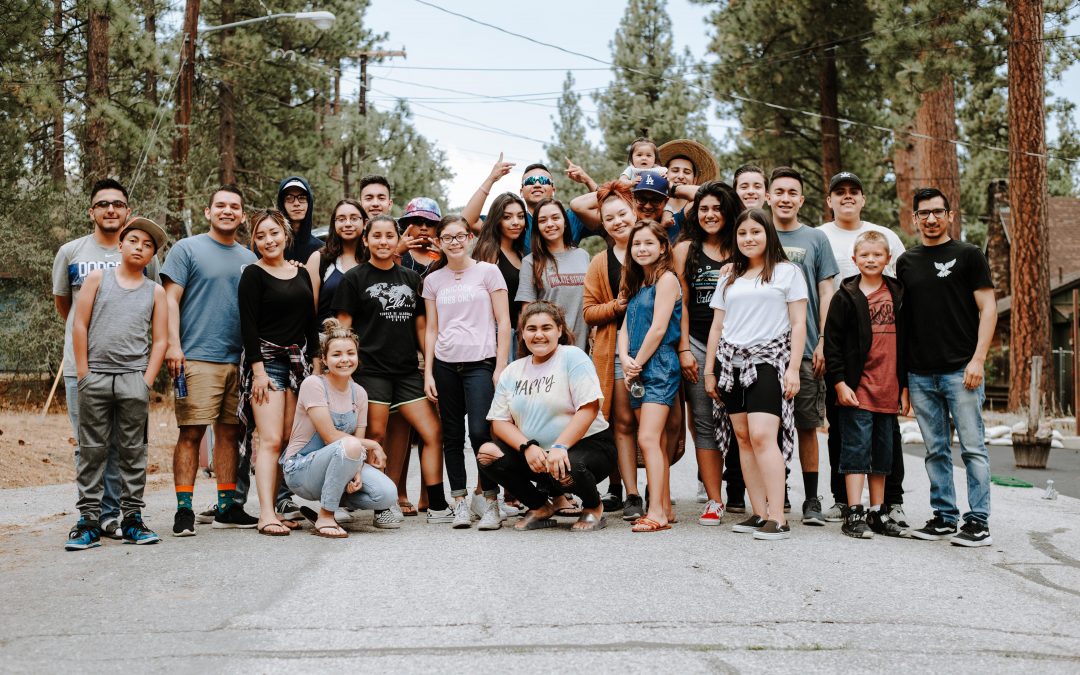
Kick Out The Jam

LoCo Teams! We need you. The [Ubuntu Global Jam](https://wiki.ubuntu.com/UbuntuGlobalJam) is happening in less than a month.
Help bring Free Software to the masses. Organize an *Ubuntu Global Jam* event. Anyone can do it, you don’t have to be a developer or technical, you just provide a place for Ubuntu fans in your area to get together.
It is simple:
1. Pick a venue (can just be a pub, bar, restaurant, or coffee shop) near you.
2. Pick a day between **2nd – 4th September 2011**.
3. [Add your event](https://loco.ubuntu.com/events/add/) to the [LoCo Team Portal](https://loco.ubuntu.com/).
4. Tell your local area about it, blog about it, tweet it, and spread the word!
Let me know in the comments the events you get set up!
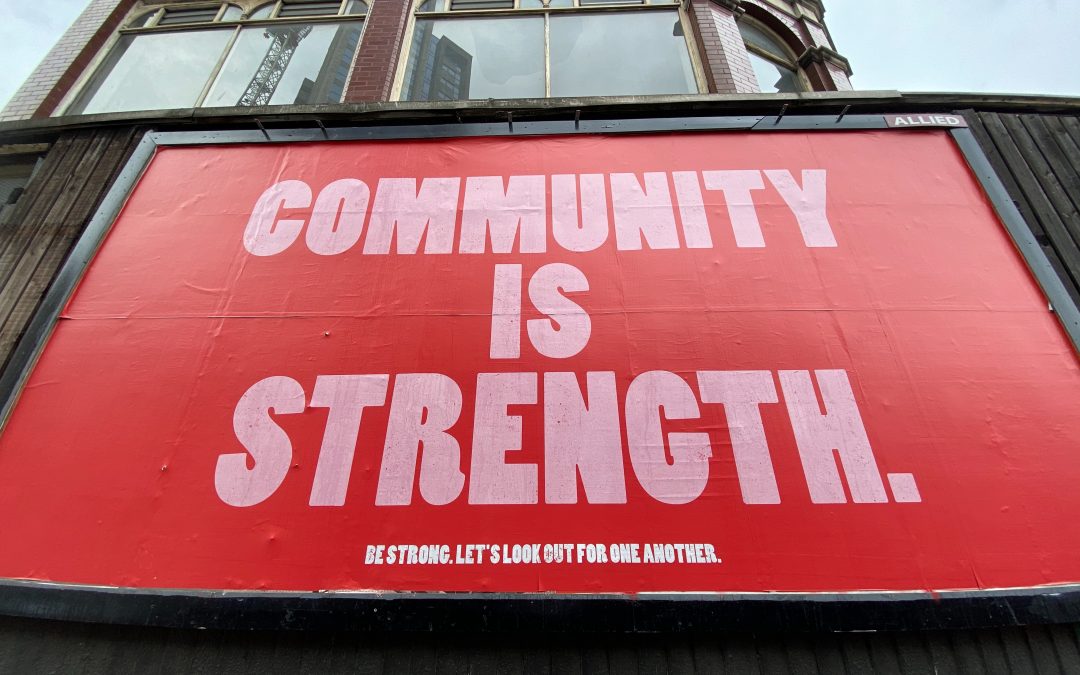
Weekly Ubuntu Q+A Videocasts
For quite some time now I have been running a [live weekly video Q+A session](https://www.ustream.tv/channel/at-home-with-jono-bacon) in which I invite the Ubuntu community to join me and ask questions about the project, seek clarification on Ubuntu decisions, as well as questions about Open Source, Free Software, technology, and more.
Each session takes place **every Wednesday** at **11am Pacific / 2pm Eastern / 6pm UTC** on [this website](https://www.ustream.tv/channel/at-home-with-jono-bacon). If you want to ask questions be sure to register with ustream first, you need to log in to type your question. There will be a session today, and I hope to see you there!
I look forward to seeing you at the casts!
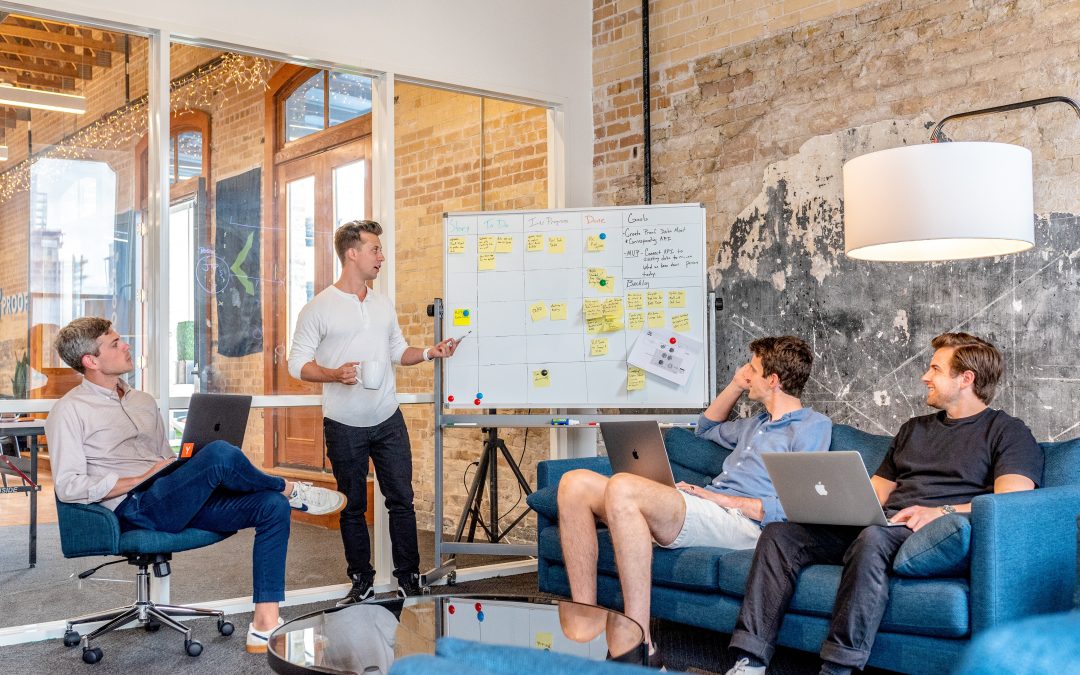
Chris Anderson Confirmed For 2nd Ed. Foreword
As I [mentioned previously](https://archivedblog.jonobacon.com/2011/07/22/the-art-of-community-second-edition-confirmed/), I am working on a second edition of *The Art of Community*, my book that teaches community leadership and the different skills, challenges, and opportunities therein. The first edition is [available](https://www.artofcommunityonline.org/get/) under a Creative Commons license (as well as in print form) and designed to be of use to Open Source communities such as the Ubuntu community, so I figure it would be appropriate to share a few updates here and there on my blog.
I am delighted to share that *Chris Anderson* will be providing the foreword for the book. Chris is the current editor of [Wired](https://www.wired.com/) magazine, winning the *National Magazine Award* for general excellence three times as part of his tenure. He is also the author of the *New York Times* best-seller *[The Long Tail: Why the Future of Business is Selling Less of More](https://www.amazon.com/Long-Tail-Future-Business-Selling/dp/B001Q9E9F6/ref=sr_1_1?ie=UTF8&qid=1311980846&sr=8-1)*. Chris also wrote [Free: The Future of a Radical Price](https://www.amazon.com/Free-Future-Radical-Chris-Anderson/dp/B00342VEP6/ref=sr_1_1?s=books&ie=UTF8&qid=1311980894&sr=1-1) and has also been part of [The Economist](https://www.economist.com/), [Nature](https://www.nature.com/), and [Science](https://www.sciencemag.org/). Outside of writing he is actively involved in [DIYDrones](https://diydrones.com/).
For you Ubuntu fans reading this, Chris is a fan of Ubuntu and interested in the work we are doing to bring Free Software to the masses. I think Chris will bring a strong sense of credibility to the art and science of community management outlined in the book.
You can keep up to date about the book on [the website](https://www.artofcommunityonline.org/) and by [following @artofcommunity](https://twitter.com/artofcommunity).

Open Source Health With FitBit
As some of you might remember, I have expressed concerns at times about the physical health of some folks in our community. Some of us are overweight, spend too much time in front of a computer, have less-than-stellar diets, get little exercise, and boast about drinking too much caffeine. While I am not a health nut, and I am not trying to turn everyone into a health nut, I sometimes worry about the physical health of folks in our different communities. I want people to contribute to Free Software, but would never want them to develop unhealthy habits in doing so.
I feel really fortunate in this regard in that my wife, Erica, *is* a health nut. Before I met her, I used to eat like crap, rarely exercised, and I didn’t really know a lot about health and nutrition. I didn’t know a lot because I *didn’t want to know a lot*. Some of you may be aware that Iam a fairly social animal, and I didn’t want to be eating salads and sipping on tonic water whenever I was socializing. I am happy to be healthy, but I didn’t want to live a miserable life in the pursuit of it.
Ever since I met Erica, she has taught me heaps about how to stay healthy. It turns out that you can eat tasty food, have a good time socially, and still be healthy by just knowing a little bit more about what your options are. This is one of the many reasons I am so glad I met Erica, she not only gives me a reason to stay in shape, but she has also explained how to do it.
As such, I keep an eye on what I eat during the week, and try to eat below 2000 calories a day, I try to work out at least three times a week (a combination of metal drumming and an elliptical trainer), and try to do ten minutes of ab workout each day. At the weekend I throw caution to the wind, eat what I like, and don’t worry about working out.
Having visibility and measurements is useful when doing this. Knowing how many calories are in different foods and weighing yourself is handy, but there is another really interesting way.
## The FitBit
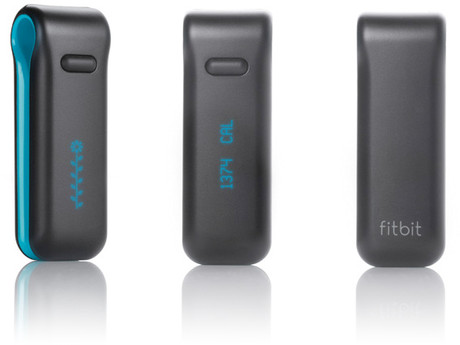
While at OSCON this week, Erica and I got chatting to a friend about the [FitBit](https://www.fitbit.com/). The FitBit is simple; it is a tiny device that looks like a clip that you clip onto yourself during the day and when you sleep. The little thing measures a stack of things:
* how many steps you take each day and when.
* how far in total you have walked.
* how many calories you have burned.
* how long you have slept and how often you wake up, giving you a good idea of the quality of your sleep.
Our friend is an enthusiastic user, so we bought a few.
I have only been using it for a day or so now, but it is really interesting. The way it works is that there is a small base station that you plug into your USB port and the little FitBit clip regularly sends it’s data to the base station, which then uploads it to the FitBit website. The website has a stack of different metrics and data analysis tools and you can use it to track your calorie intake, exercise and other additional elements. It provides a complete overview of your health, and your FitBit clip automatically updates it with what you are doing.
## Supporting Linux
I think it is a neat idea. There are though a few wrinkles for Open Source fans such as ourselves. Unfortunately, there is no Linux client for FitBit to allow you to update the site from Linux. I did though find that a guy is working on [a tool called `libfitbit`](https://www.openyou.org/2011/05/26/libfitbit-development-update/) and he has some code [in GitHub](https://github.com/qdot/libfitbit).
He says about 90% of the tool is feature complete in terms of updating the site with your details, but he has been side-tracked with other work to finish it. He also says that the current `libfitbit` is written as more of a proof of concept in Python, and he would like to re-write it in C. This would then provide a means to get the data off the FitBit clip and feed it to applications.
This got me thinking. Firstly, I would love to see FitBit fully supported in Linux. I would love to see it packaged, and whenever the data is sent to the site, a little notification bubble lets you know it was successfully transmitted. But that is only the tip of the iceberg.
Going back to my previous points about worrying if members of out community are getting unhealthy, I think the FitBit could be an awesome motivational tool to help geeks get fit. What do we like to do as geeks? We like to know about numbers, and metrics, and details, and the FitBit can help us to hack our health.
I could see all kinds of potential here. People could write Free Software apps that are based on FitBit data (imagine all the potential graphing, and health programme management apps), we could have an Ubuntu/Fedora/GNOME/KDE health community in which we have competitions for who works out the most on a given week, we could hold charity walks (imagine hooking FitBit up to Kickstarter to generate revenue based on how far you walk), and people could work together to motivate each other to stay trim. Essentially, we could crowd-source the idea of getting healthy, and base it on automated data from the FitBit.
I just wanted to throw out some of these thoughts and see if anyone is interested. The first step would be a C implementation of `libfitbit`, and I have [reached out to current author to see if he is interested in making one](https://www.openyou.org/2011/05/26/libfitbit-development-update/#comment-268278838). Would anyone be interested in helping him? If that happens would anyone be willing to volunteer to package it for Debian/Ubuntu/Fedora?

Coffee Car World Record, Powered By Bacon
My brother, Martin, is working hard right now to prepare to set a new Guinness world record for the fastest land speed record for a car powered by coffee. Crazy, yes, awesome, *definitely*. I am so proud of him, my nephews, and the rest of the team. What’s better is that the car looks like something from *Back To The Future*.
They are going to have a first test attempt on the *10th August 2011* at Elvington Race Track near York, and the main record attempt will be on the *14th September 2011*.
Be sure to check their website at [https://coffeecar.org/](https://coffeecar.org/) and [follow them on Twitter](https://twitter.com/#!/thecoffeecar); they are posting videos about the technology and prep going into smashing this record. You can also [donate](https://coffeecar.org/donate) to help them nail the record.
Here is a video introducing the car, starring the considerably-less-handsome-considerably-more-bearded brother in question.
*Can’t see it? [Click here](https://coffeecar.org/)*
I am so proud of all of them, so be sure to follow them and track this awesome record attempt!
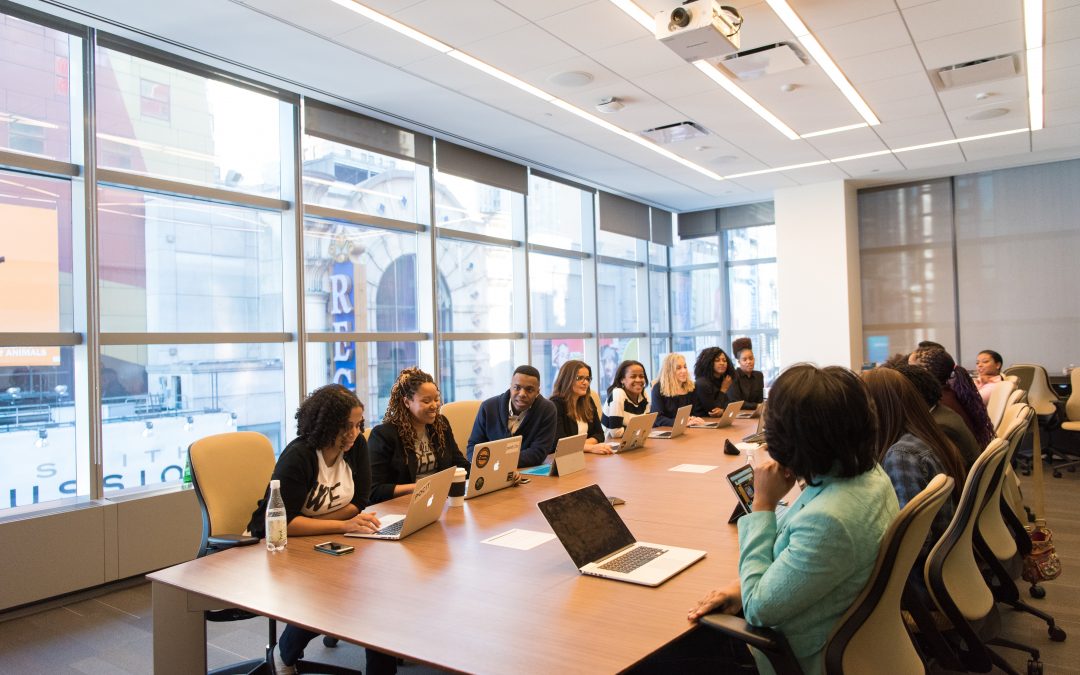
Shorter Talks And New Tricks
I had an interesting, fairly personal experience today and a resulting lesson that I wanted to share.
Earlier today I gave one of the opening keynotes at OSCON. It was 15 minutes long, and it was *OK*. While I didn’t consider it a bad talk, it wasn’t what I would consider my best work.
Immediately after the presentation I gave my second talk, which was 40 minutes long, and I was very happy with the results. A filled room of folks seemed to find the talk useful and there were plenty of questions. I *did* consider that some of my better work.
So in a nutshell, my 15 minute keynote felt *OK* and my 40 minute talk felt *solid*.
Something was bothering me much of the day about why this was.
My dissatisfaction was not with the execution of the keynote, I felt I was reasonably vibrant and articulate in the way I presented, but I was less happy with the content and the structure. It felt to me that not enough of the rubber hit the road.
I have been giving talks at conferences around the world for over twelve years. I have prided myself in striving to deliver useful content but wrapping it up in a loose and entertaining style, and providing plenty of anecdotes to identify with the audience. Twelve years in, I felt pretty confident that I had this presentation-business down pat. I felt like I had cut my teeth, paid my dues, and made all the mistakes I needed to make to get the art of delivering a solid presentation down.
I am an idiot.
As a bit of background, when I started preparing the content for my keynote, the content and the structure was something I really battled with. This was a different type of keynote; it was more along the lines of a lightning talk in terms of duration, but it had the gravitas of a keynote. It needed to be thought-provoking and set the stage for discussions elsewhere at OSCON. But I needed to do this in a short burst of time, and make it feel like an experience that people could identify with. I had my message; I believe that we are at the beginning of a renaissance in community management, but I found the shorter nature of the presentation and it’s position as a keynote really challenging, and more-so than I expected.
After delivering the keynote and in thinking about this and talking to some close friends, I came to some conclusions, and it is these conclusions that I wanted to share. If you are a presenter some of these thoughts might be useful in how you think about your own presentations too.
Firstly, my presentation style has always been story orientated; I build up a context, provide some tension in that context, and then deliver an outcome that strives to relieve the tension and provide insight. As such there is a certain amount of set up and context building that gets the audience up the curve, I then deliver the outcome and bring the audience back down over the curve and provide conclusions. This story-telling component takes time…valuable time in a short presentation.
Secondly, Steph Walli observed that there is a real skill in writing novels and a real but very different skill in writing short stories. I think this was really insightful. Short stories by definition need the story-telling to be more compact, and the finesse and skill is in delivering the same smooth set-up and transition of events, but with fewer keyframes thrown into the mix.
As such, my conclusion here is that I like to tell stories, and my presentations always comprise of telling stories, but my career so far has far been from the perspective of a novellist as opposed to a short-story writer. I believe this was illustrated today when my longer talk felt more natural and more *me*, yet the keynote felt personally more awkward, and *less me*. While I am confident in my skills in delivering a 30 or 40 minute presentation, I discovered today that delivering a shorter presentation that needs to have the same or greater level of gravitas requires a very different and distinctive set of skills, and I want to aquire them.
To be completely clear, none of this is at the fault of OSCON and O’Reilly, I have no issue with 15 minute keynotes, and they put on one heck of a great conference. Everyone has been so supportive and wonderful to me. I am delighted they gave me an opportunity to get up and speak and I feel even more grateful that my experience has now helped me to learn something new about myself, and a new area to focus, even after I had been down the presentation road so many times before and I thought I knew what I needed to know.
It turns out that this old dog still needs to learn some new tricks, and I am now switching gears to learn how to do this. Thoughts and advice all welcome! 🙂

The Art of Community: Second Edition Confirmed
In August 2009, my book, [The Art of Community](https://www.artofcommunityonline.org/) was published. After a rigorous writing schedule I was delighted to see it finally hit the (real and e-) bookshelves.
As part of the agreement with O’Reilly, I was keen for the book to be released in both print form and under a free Creative Commons license, and O’Reilly happily agreed (they have been releasing many of their books for free for many years). I believe that community management and best practice should be *available to all*, and not just those with a wallet full of notes, and I can’t think of a better publisher to support this ethos.
If trying to write a great book about your profession was not worrying enough, the really worrying period came next. Would people like it, and would it help them build communities? I wanted to ensure everyone who believed in the book were satisfied when it finally came out.
I worried myself senseless.

This guy got it and likes to read it in front of webcams,
Fortunately, the reception was really quite positive. It was rated #2 in the Top 10 must-have social media books by Mashable, received favourable reviews in the press, and has netted 4 1/2 stars on [Amazon USA](https://www.amazon.com/Art-Community-Building-Participation-Practice/dp/0596156715) and [Amazon UK](https://www.amazon.co.uk/Art-Community-Building-Participation-Practice/dp/0596156715), and 4 stars on [Amazon Canada](https://www.amazon.ca/Art-Community-Building-Participation-Practice/dp/0596156715). It started being referred to as the leading book on community management and spawned translated editions in Japanese and other languages.
Naturally I was stoked with the reception. Fortunately, the book has sold decently, showing O’Reilly that the Creative Commons approach is good for business, and also that people will indeed buy print copies of media they could get for free. Thankyou to everyone who bought or download the book, and thankyou for your support.
## The Second Edition
I few weeks ago I tweeted:
> Getting the itch to write a 2nd edition of The Art of Community – would you folks be interested in it? #artofcommunity #oreilly #community
After an eager response I contacted the always awesome *Andy Oram* from O’Reilly (who was responsible for the first edition happening), and he was interested. I fleshed out some plans, put together a proposal and sent it over. Last week it got approved and this week we finalized the contract.
So, I am delighted to announce that I have **started work on a second edition of *The Art of Community***. I can’t confirm a publishing date yet, but stay tuned.
## Keeping Up To Date
Speaking of staying tuned, like with the first edition, I will be blogging throughout the writing process and providing plenty of updates, news, competitions, and features as it continues. You can keep up to date [on the official blog](https://www.artofcommunityonline.org/), by following the brand new [@artofcommunity on Twitter](https://twitter.com/#!/artofcommunity), and on [the Facebook page](https://www.facebook.com/artofcommunity).

Community Leadership Summit 2011 This Weekend!

This weekend is the [Community Leadership Summit 2011](https://www.communityleadershipsummit.com/); an annual event designed to bring together community leaders and managers to share best practice, ideas, and solutions. The event is entirely **free** and takes place from **23rd – 24th July 2011** in **Portland, Oregon**. The event takes place the weekend immediately before [OSCON](https://www.oscon.com/oscon2011) in the same venue, the **Oregon Convention Center**.
Over **320** people have already registered from a [diverse range of organizations](https://www.communityleadershipsummit.com/attendees/) including *Mozilla, O’Reilly Media, Rackspace, Adobe, Partimus, Red Hat, Google, Portland State University, Open Affairs Television, Apache Software Foundation, Xen, Digium, IBM, Microsoft, CloudCamp, OpenSesame, Oregon State University Open Source Lab, Wikia, Eucalytpus, MySQL, MeeGo, Linaro, Oracle, Linux New Media, BitNami, SUSE, setiQuest, Webtrends, Alfresco, Northeast Coalition of Neighborhoods, Open Source Bridge, OpenStack, Joomla!, Peace Markets, Infinity Curve, MoreThanGiving.com, TYPO3 Association*, and many more.
If you are interested in community and building great community for your organization or project, be sure to come and join us. The event is an unconference, and as such the content and topics are driven by the attendees, which has resulted in a rich set of content and great best practice shared across many different disciplines.
I also want to offer my thanks to [O’Reilly](https://oreilly.com/), [Oracle](https://www.oracle.com/), [OpenStack](https://www.openstack.org/), [Ohloh](https://www.ohloh.net/), [Google](https://www.google.com/), and [Microsoft](https://www.microsoft.com/) for helping to support the event!
Interesting In Coming? Simple. Just go and [register](https://www.communityleadershipsummit.com/register/) (it is **free**) and feel free to [share some session ideas](https://communityleadershipsummit.wikia.com/wiki/2011/SessionIdeas) that you may want to see or run at CLS11.
## Friday Night
To kick off CLS we will be having an informal get-together at 7.30pm at:
Spirit of 77,
500 NE Martin Luther King Jr Blvd.
Portland, OR 97232(503) 232-9977
We look forward to seeing you there!
## Scheduling Sessions
The CLS is an unconference, meaning everyone is welcome to volunteer a session while there. We start with a blank slate and then the audience put sessions up.
Thanks to our generous sponsors, **everyone who runs a session will get a free copy of my book, [The Art of Community](https://www.artofcommunityonline.org/)** as a thankyou for running a session.
If you are interested in running a session, we would love to see you plan your session with other attendees. To do go to the [CLS11 Wiki](https://communityleadershipsummit.wikia.com/wiki/Community_Leadership_Summit_Wiki) and share [session ideas](https://communityleadershipsummit.wikia.com/wiki/2011/SessionIdeas) and [lightning talks](https://communityleadershipsummit.wikia.com/wiki/2011/Lighting_Talks) for the event. Everyone is welcome to share ideas!
## Spreading The Word
CLS11 is shaping up to be an awesome event, but we could always do with more awareness so as many people can come along and meet people and learn and share ideas. Some ways in which you can help:
* Tweet about the event and be sure to use the `#cls11` hash tag.
* Join the [Facebook Event](https://www.facebook.com/event.php?eid=196907063655463) for further updates.
I look forward to seeing you all there!

Calling Those To Rock The Ubuntu 11.10 Global Jam

Every cycle we organize the [Ubuntu Global Jam](https://wiki.ubuntu.com/UbuntuGlobalJam); an event in which our global community gets together in their local area to help make Ubuntu better. The *Ubuntu Global Jam* is a great opportunity to get together and meet other Ubuntu fans and contributors, make new friends in your area, and help to make the next Ubuntu release the best it can be so we can bring Free Software to the masses.
We have done a few Ubuntu Global Jams before, but for this one I want to see if we can **outdo every other jam**. I believe that if we come together as a community we could organize more events than ever before. If I recall, our record has been **60 events**, but I think we can beat that. To do this though, we all need to organize events.
Today I talked with Randall Ross who has helped to coordinate the awesome [Ubuntu Community Week](https://wiki.ubuntu.com/UbuntuCommunityWeek) this week, and he has the bit between his teeth to help drive this to success too. Randall, combined with the awesome LoCo Council and other LoCo leaders are determined to help the community get as many events organized as possible.
So, I just wanted to give everyone a heads up that the date of the Ubuntu Global Jam is **2nd – 4th September 2011**. I am really keen that everyone has as much notice as possible to get your events ready!
### The Key Global Jam Points
There is sometimes a little uncertainty about organizing and participating in Ubuntu Global Jam events. Let’s get some clarity on that right now:
* **Everyone is welcome** – *anyone* is welcome to organize or join an Ubuntu Global Jam event. To organize an event, you just have to be in an [Ubuntu LoCo Team](https://loco.ubuntu.com/teams/).
* **You don’t have to be technical** – Ubuntu Global Jam events attract lots of different people, and you don’t have to be a developer or technical to take part. Everyone is able to contribute to the events.
* **Events are easy to organize** – all you need to do is pick a place to meet up on, agree on a date and time, and tell others about it. That’s it!
* **All LoCo teams are welcome** – you don’t have to be an approved LoCo team to organize an event – any LoCo team is welcome!
* **We need everyone to participate** – we need you! While we have many rocking folks in our community, we are looking for the teams who have never organized an event before to participate too!
### How to organize an event
Organizing an event is simple!
1. Check out [this guide to organizing an event](https://wiki.ubuntu.com/Jams).
2. Go and [add your event](https://loco.ubuntu.com/events/add/) to the LoCo Team Portal.
3. Be sure to tweet/dent/facebook it and use the `#ugj`, `#ubuntu`, and `#locoteams` tags so others can see them!
To get the ball rolling, I am going to be dedicating a chunk of [my videocast on Wednesday at 11am Pacific / 2pm Eastern / 7pm UTC](https://www.ustream.tv/channel/at-home-with-jono-bacon) to discussing how to get involved organizing an event, and answering questions about running events. Be there and join in the fun!
So far we have [**6** events organized](https://loco.ubuntu.com/events/global/1011/detail/). Let’s get that number up. 🙂
This is going to be an awesome *Ubuntu Global Jam*, I can feel it. Let’s make it happen, friends. 🙂

Ubuntu Developer Summit Sponsorship Now Open

The [Ubuntu Developer Summit](https://uds.ubuntu.com/) (UDS) is the most important event in the Ubuntu calendar. It is where we get together to discuss, design, and plan the next version of Ubuntu; in this case the very important Ubuntu 12.04 Long Term Support (LTS) release.
The next UDS takes place at **The Caribe Royal, Orlando, Florida, USA** from the **31st Oct – 4th Nov 2011**. You can find out more about why UDS is interesting from the perspective of a [member of the community](https://uds.ubuntu.com/participate/community), an [upstream contributor](https://uds.ubuntu.com/participate/upstreams), and a [vendor](https://uds.ubuntu.com/participate/vendors). We also welcome everyone to [participate remotely](https://uds.ubuntu.com/participate/remote) if you can’t attend the event in person. More more details on how to get there, see [this page](https://uds.ubuntu.com/travel/).
At the heart of a great UDS is a diverse group of attendees who can bring their experience and expertise to the discussions. You don’t have to be technical, or be a programmer or packager to attend – UDS is open to everyone (including non-Ubuntu folks) and free to attend. We encourage everyone with an interest in Ubuntu to attend.
## Sponsorship
For every UDS Canonical sponsors the hotel and accommodation of a set of community members to ensure they are free to contribute and bring value to the discussions. We have a limited budget so we can’t sponsor everyone, but we are always keen to have a capable and diverse group to sponsor:
* We strive to support community members who are actively involved in Ubuntu and who are providing *significant and sustained* contributions to the Ubuntu project.
* We always welcome Upstream contributors who are bring value to Ubuntu indirectly via active participation in their upstream project, but who are keen to see quality support for that upstream in Ubuntu.
* Contributors are willing to actively participate not only throughout the full Ubuntu Developer Summit week, but also following with active contributions throughout the release cycle.
* We are always keen to welcome members of the community who have never been to UDS before and are keen to participate and experience the event.
* You don’t have to provide technical contributions to apply – if you have participated in the areas of advocacy, documentation, testing, art, design etc, you are encouraged to apply.
* UDS is an event that encourages diversity – we welcome everyone to apply for sponsorship, irrespective of gender, race, impairment, technical expertise, or other factors.
If you are participating in the Ubuntu community, we would love you to apply for sponsorship. This is how it works:
1. You can apply for sponsorship [by following these instructions](https://uds.ubuntu.com/participate/sponsorship/). Apologies for the different forms you need to fill in – we are going to consolidate these forms at the next UDS. The deadline for submissions is **Wed 24th August 2011** so be sure to get yours in!
2. When the deadline is reached we will assess the applications and finalize who we will be able to sponsor.
3. You will then receive an email outlining whether we can sponsor you or not.
Simple! I look forward to seeing your applications, and seeing many of you in Florida!
